Orlov, Alexandr K., and Vadim S. Kankhva. "Lean Construction Concept Used to Develop Infrastructure Facilities for Tourism Clusters". Buildings. December 29, 2021. https://doi.org/...
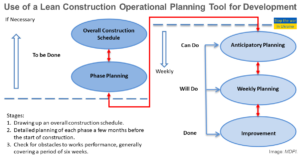 Lean construction increases the efficiency of developing infrastructure facilities for tourism destinations. This study proposes the methodological approach to the implementation of megaprojects of tourism clusters based on the lean construction concept. It is to serve as the basis for organizing and planning development activities at the tactical and operational levels. The paper examines the lean construction concept for territory development and the implementation of infrastructure tourism clusters. It suggests that lean construction contributes to the improved quality of products and services, reduced costs, improved environmental component of the regions, reduced construction time, and improved image of construction companies.
Lean construction increases the efficiency of developing infrastructure facilities for tourism destinations. This study proposes the methodological approach to the implementation of megaprojects of tourism clusters based on the lean construction concept. It is to serve as the basis for organizing and planning development activities at the tactical and operational levels. The paper examines the lean construction concept for territory development and the implementation of infrastructure tourism clusters. It suggests that lean construction contributes to the improved quality of products and services, reduced costs, improved environmental component of the regions, reduced construction time, and improved image of construction companies.
Posted on 22/03/22
Recent Abstracts

Can the SDGs Provide a Basis for Supply Chain Decisions in the Construction Sector?
Sustainability in the construction sector has increased in importance but is difficult to implement. This paper provides an empirical investigation into the value of the UN sustainable development goals (SDGs) for use as a framework for action to drive organizations towards sustainability in global construction supply ...
Posted on 08/12/21
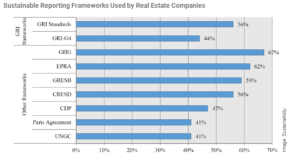
The Involvement of Real Estate Companies in Sustainable Development – An Analysis from the SDGs Reporting Perspective
This paper analyzes the extent to which the EU real estate companies meet sustainable development goals (SDGs) while meeting stakeholders’ information needs. Sustainability reports and annual reports were studied to highlight their prioritization of SDGs and the extent to which they are integrated in their business mo ...
Posted on 07/12/21
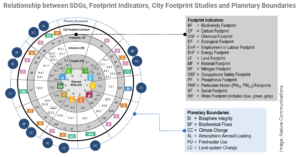
City Footprints and SDGs Provide Untapped Potential for Assessing City Sustainability
Concepts that assess the sustainability of cities are only now emerging. Assessments vary considerably depending upon the indicators, targets and methods. Science can help in defining indicator frameworks, quantifying indicators, and developing the metrics and methods for evaluating progress. The UN 2030 Agenda and ...
Posted on 07/12/21
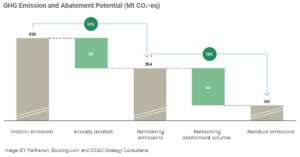
Global Accommodation – The Road to Net Zero Emissions
There is significant potential for the reduction of GHG emissions from accommodations while reducing the operating costs to achieve net-zero GHG emissions by 2050. This report focuses on abating direct and controllable emissions and presents a transition pathway with opportunities for accommodations to directly reduc ...
Posted on 06/12/21
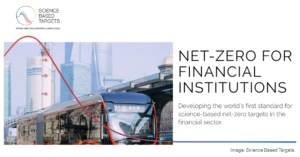
Net-Zero for Financial Institutions
Standardization is needed to evaluate and validate net-zero commitments in the financial sector. This is needed for financial institutions to drive the decarbonization of the real economy and stabilize temperatures at 1.5°C above pre-industrial levels. The objective of the Science Based Targets initiative (SBTi) is t ...
Posted on 06/12/21

Global Destination Sustainability Index 2021
The top 10 destinations are #1 Gothenburg, Sweden; #2 Copenhagen, Denmark; #3 Aarhus, Denmark; #4 Glasgow, UK; #5 Reykjavik, Iceland; #6 Tirol, Austria; #7 Lyon, France; #8 Zurich, Switzerland; #9 Bordeaux, France; and #10 Aalborg, Denmark. The GDS-Index is a performance improvement program to make the leisure tourism ...
Posted on 05/12/21
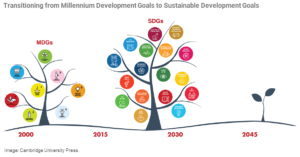
Design For Sustainable Development
This thematic collection aims at creating a forum for encouraging and debating the design for sustainable development. High-quality scientific contributions are needed to provide a coherent and widely accepted approach for designs that maximize the positive and minimize the negative environmental impacts while bringin ...
Posted on 04/12/21

“Overview: Putting Sustainable Development at the Core of Business Models.” In Development Co-Operation Report 2016 – The Sustainable Development Goals as Business Opportunities
The private sector holds a pivotal position in achieving the goals of the 2030 Agenda for sustainable development, which requires funding and co-operation on an unprecedented scale. This chapter addresses how international cooperation can help to put sustainable development at the core of business models and provides ...
Posted on 04/12/21

Does Private Equity Ownership Make Firms Cleaner? The Role Of Environmental Liability Risks
Private equity-backed firms increase pollution in locations and periods where environmental liability risk is relatively low while decreasing GHG emissions and pollution where regulatory risks increase. This study shows that private equity (PE) ownership leads to a 70% reduction in the baseline rate of toxic pollution ...
Posted on 03/12/21
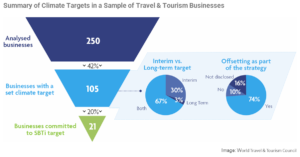
A Net Zero Roadmap for Travel & Tourism
This report supports stakeholders on the transition towards net-zero emissions by providing knowledge for the climate commitments of the private sector. It considers the most common roadblocks and areas for support as well as decarbonization levers for the achievement of net-zero targets. The report offers a decarbon ...
Posted on 02/12/21

Public International Funding of Nature-Based Solutions for Adaptation: A Landscape Assessment
Nature-based solutions for adaptation (NbSA) encompasses different types of activities, investments and approaches that seek to protect and restore nature and ecosystems. NbSA investments are fundamentally important in helping many countries address climate change to bring about economic development and other benefits ...
Posted on 02/12/21

Albrecht Voss: 2021 Hasselblad Masters Winner – Architecture
Albrecht Voss is the winner of Hasselblad Masters 2021 photo competition in the architecture category. The competition consists of 12 categories. Each entry must consist of three (3) photos in each category and each entry is judged on the three submitted images in that category. 60,000 photos were submitted. The Ha ...
Posted on 01/12/21
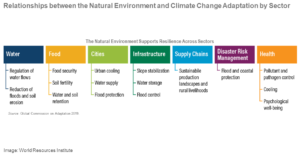
Nature-Based Solutions for Urban Hotel Real Estate
A 40% drop in natural capital per person has been reported over the past two decades while being systematically depleted. However, nature and its ecosystem services are at the center of the hospitality business proposition at the destination, where nature is a source of solutions to mitigate and adapt to climate chang ...
Posted on 01/12/21
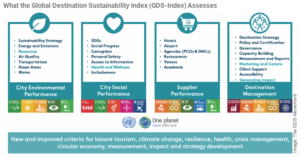
Global Destination Sustainability Index (GDS-Index) Benchmarking Methodology
The GDS-Index is a destination level program that measures, benchmarks and improves the sustainability strategy and performance of tourism and events destinations. Its purpose is to inspire, engage and enable destinations to become more regenerative, flourishing and resilient places to visit, where to meet, and thrive ...
Posted on 30/11/21
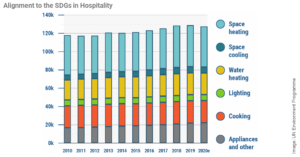
Sustainability in Hospitality
The forum explores ideas, strategies and solution for an industry facing increased environmental and societal challenges. Industry opinion leaders and experts share their thoughts, reactions and insights on the important issues and events that are affecting the global hospitality business. Its goal is to anchor susta ...
Posted on 29/11/21

